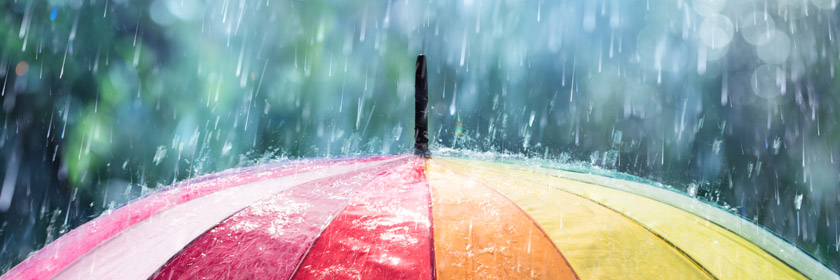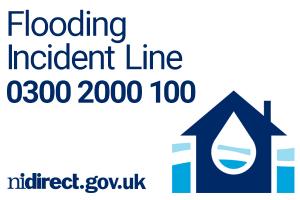Weather

Self Help piles of grit
Council will not be gritting areas that are currently covered by other agencies during their strike, Council will only grit the limited areas that they are currently responsible for.
Self Help grit piles are facilitated for residents to take a small load for gritting outside of their property.
We ask that residents do not take more than a small amount each to ensure that we can help as many people as possible.
Staff are working to replenish grit as quickly as possible while stock is available.
Council will top up the following Self Help piles:
Larne
- Redlands Household Recycling Centre
- Glenlough Community Centre, Carnlough
- Glenview Car Park, Carnalbanagh
- Larne Leisure Centre Car Park
- Glenarm Car Park (Beside Pigoen Club)
- Glenarm Car Park, The Clooney
- Deerpark Road (Beside Creamery)
- Islandmagee Cemetery, Low Road, Islandmagee
- Raloo Presbyterian Church Car Park, Raloo
- Ballygalley Car Park (Beside Spar)
Carrickfergus
- Sullatober Depot
- Amphitheatre, Carrickfergus
- Greenisland Allotments Car Park, Knockleigh Walk
- Castleview Pavillion Car Park (Beside Recycling Bring Sites)
Ballymena
- Waveney Road (Beside Recycling Bring Sites)
- Broughshane Community Centre Car Park
- Portglenone Community Centre Car Park
- Ahoghill Community Centre Car Park
- Cullybackey Community Centre Car Park
- Kells and Connor Community Centre Car Park
- Clough Playing Fields Car Park
- Greenhill Pub, Cargan
- Ballee Community Centre
- Ballykeel Community Centre
- Ballymena North Centre
- Harryville Community Centre
- People’s Park – Doury Road Layby
- Tullygarley Community Centre
- Ballymena Showgrounds, Warden Street
- Dunclug Community Centre
- Portglenone Marina
- The Grange (entrance to The Moorlands)
- Clough Community Centre
- Galgorm and Gracehill Community Centre
NI Direct has provided the following information for advice:
Emergency numbers
People should note the following numbers in case of emergency:
Emergency numbers
You should note the following numbers in case of emergency:
Emergency services – 999 or 112
Northern Ireland Electricity Networks – 03457 643 643
NI Gas Emergency Service – 0800 002 001
Northern Ireland Water Waterline – 03457 440 088
Flooding Incident Line – 0300 2000 100
Housing Executive – 03448 920 901
Report a fallen tree or blocked road - 0300 200 7891
Roads information
If there are any problems on the roads, you can get the latest updates on the this link:
Preparing for a flood
To help reduce the impact of flooding on your home, you should:
- have some sandbags or floodboards or plastic covers prepared to block doorways and airbricks
- know where to turn off your electricity and/ or gas
- move your valuable possessions to safety
- ensure your insurance provides cover against flood damage to property
- keep a list of useful contact numbers such as your local council, emergency services and your insurance company
You can get more details on NI Direct's preparing for a flood page.
You can get more information about flooding at the following link:
Driving and walking in flooded areas
Do not travel in heavy rainstorms unless absolutely necessary.
In flooded areas, drivers should not:
- enter flood water that is moving or is more than four inches deep
- under any circumstances, drive through fast-flowing water as the car could be swept away
In more shallow but passable water:
- slow down
- avoid creating bow waves which can damage your car engine; and
- remember to test the brakes after leaving the water
Do not attempt to walk through flooded areas. Even shallow water moving fast can sweep you off your feet and there may be hidden dangers such as:
- open drains
- damaged road surfaces
- submerged debris; or
- deep channels which can result in serious injury or, in the worst cases, death
If you do become stranded in flood water and you feel there is a risk to life, dial 999 for emergency assistance.
Insurance claims after a flood
If you are going to report flood damage to your insurance company there are certain things to remember. You should keep a record of the flood damage and any contact you have with the insurance company.
If you have different insurers for the structure of your home and your content, make sure you contact them both.
If you live in rented accommodation, the landlord will deal with the structure of your home. For content claims, contact your own insurer.
You can find out more at this page:
Risks related to flooding
Be aware of hidden dangers under the water, such as missing manhole covers, and guard against the possibility of falling into fast-flowing water.
The risk of becoming ill after contact with flood water is generally low. However, as it is not always clear whether flood water is contaminated, you should assume that it is and take appropriate precautions.
Preventing health problems
There are a number of things you can do to prevent health problems if your home floods:
- wherever possible try to avoid coming into direct contact with floodwater
- do not let children play in floodwater
- use rubber gloves when cleaning up
- wash hands after being in contact with flood water, sewage or anything contaminated by these
- wash children’s hands regularly
- clean toys that have been in flood water with disinfectant
- cover cuts or open sores
- don’t eat any food that has been in contact with floodwater
- clean all surfaces with disinfectant before any food is placed on them
Contact your GP if you, or someone you know, develops a stomach upset following flooding.
